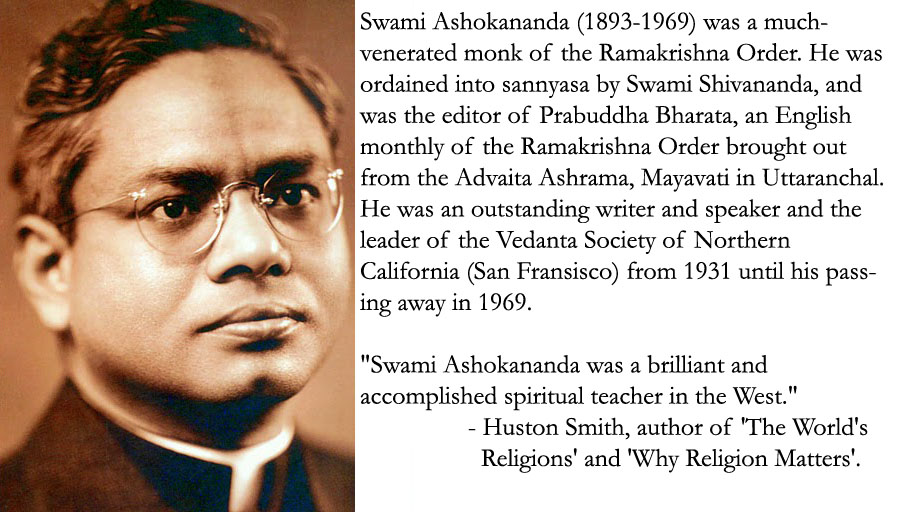Vedanta is not a proselytizing religion. It says what it has to say to whomever wants to listen, but it does not wave flags or blow trumpets. While its teachers know that its message is life transforming, they also know that very few people want their lives to be transformed—however miserable and painful those lives may be. When a person is ready for change, he or she will come to the right spiritual teacher in his or her own time and way. That is all. Vedantists believe that there is a sort of cosmic law about it and that the teacher will wait for the student to come of his or her own accord. When the student finally does come, generally the greeting is, “What took you so long?”
Vedanta has been on this earth for thousands of years. It is the philosophical basis of Hinduism and, in its breadth and depth, encompasses all the great religions of the world. It was born in the forest retreats of ancient India India India
In our own times, Sri Ramakrishna, an untutored priest and a disciple of an enlightened Vedantic monk, manifested in his life and words every aspect of Vedantic wisdom. He followed, one after another, each religious path that was known to him, and at the end of each he experienced the same essential truth—thus verifying once for all the ancient Vedic saying: “Truth is one; sages call it by various names.” Christians, Muslims, and of course Hindus of various sects sat at his feet, as though at the feet of their own prophets and saviors, and there found the reality and the peace they sought.
Swami Vivekananda
Sri Ramakrishna’s illustrious monastic disciple, Swami Vivekananda, was the first Hindu monk to bring Vedanta (which he equated with the universal message of his Master) to the West—not as a missionary, but as a teacher of spirituality. Swamiji (as Swami Vivekananda is usually called) came first to the Parliament of religions, held in Chicago in 1893, and stayed for two or three years to lecture in America and England. Four of his brother disciples (Swamis Abhedananda, Saradananda, Turiyananda and Trigunatitananda) followed in his wake. Then, in the early decades of the twentieth century, came the next generation of monks, to which Swami Ashokananda belonged. Today (April 14, 2003) there are thirteen Vedanta societies in America
